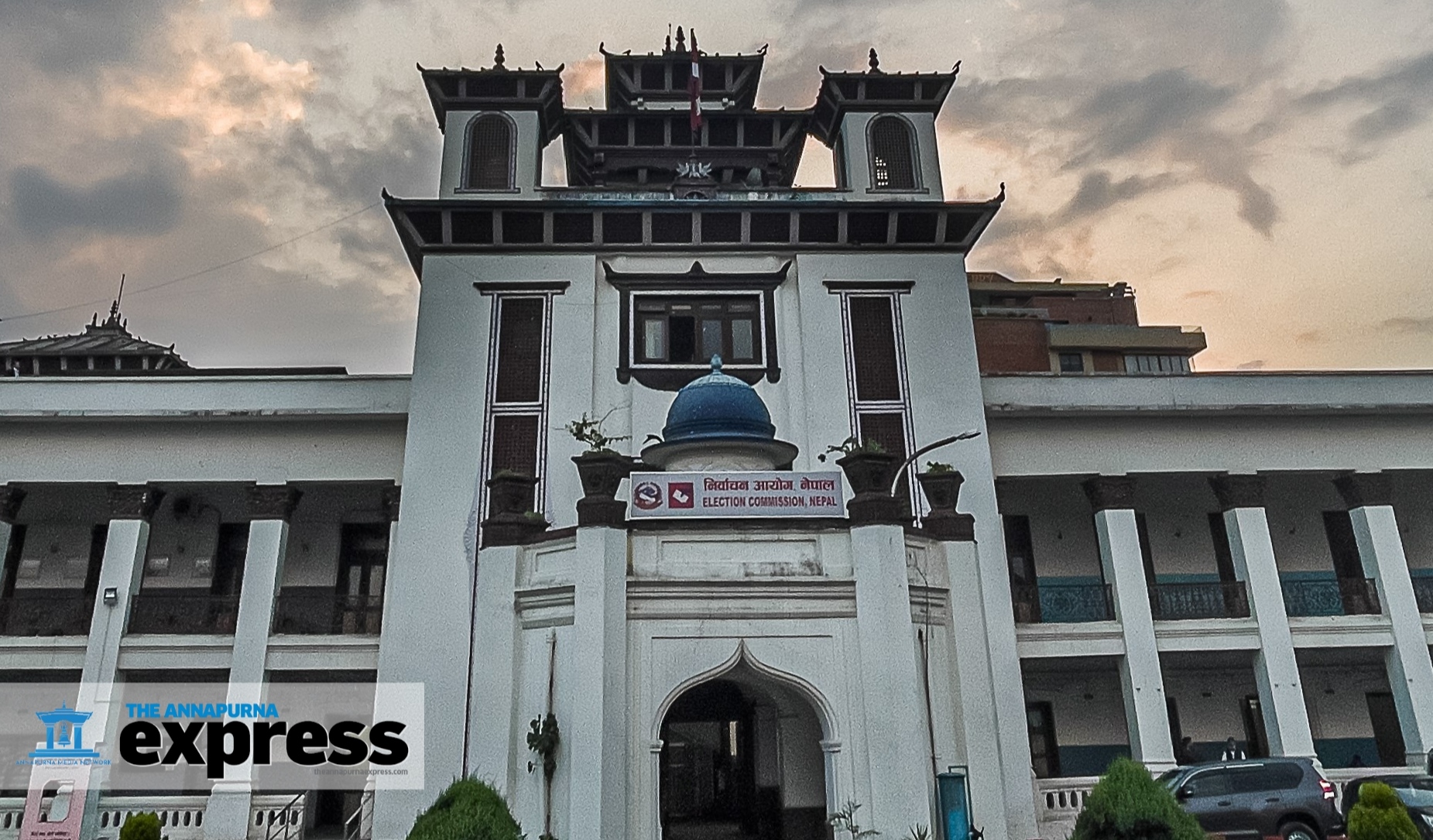District Court remands former Home Minister Khand in custody for four days
The Kathmandu District Court on Wednesday ordered the police to keep former Home Minister Bal Krishna Khand in custody for four days and proceed with their investigation. Laxman Upadhyay Ghimire, spokesperson at the Public Prosecutor’s Office, said that Khand has been remanded in police custody for four days. The former home minister was apprehended from his residence in Maijubahal, Chabahil on Wednesday in connection with the fake Bhutanese refugee scam. The District Police Range, Kathmandu grilled Khand for five hours.
Fake Bhutanese refugee scam: Deuba files complaint with Cyber Bureau to investigate fake audio
Nepali Congress lawmaker Arju Deuba filed a complaint with the Cyber Bureau to investigate the fake audio. She lodged the complaint demanding that the Bureau investigate the fake audio that linked her name to the fake Bhutanese refugee scam and take action against the culprits. Deuba claimed in the complaint that the audio was made public through social media to assassinate her character. Saying that the audio was recorded in a premeditated manner, she demanded that the guilty be booked at the earliest.
Three senior leaders discuss fake Bhutanese refugee scam, transitional justice issues
Senior leaders of the three major political parties—Prime Minister and CPN (Maoist Center) Chairman Pushpa Kamal Dahal, Nepali Congress President Sher Bahadur Deuba and CPN-UML Chairman KP Sharma Oli—held a meeting the at the prime minister’s office in Singha Durbar on Wednesday. During the meeting, they discussed the fake Bhutanese refugee scam. The trio held a discussion after police started arresting the leaders of the major political parties in the case of fake Bhutanese refugees. A source said that they also discussed the issues of transitional justice. The prime minister’s Secretariat said that they also discussed the ways to make the ongoing budget session of the Parliament effective.
UML suspends Top Bahadur Rayamajhi
The CPN-UML on Wednesday suspended its Secretary Top Bahadur Rayamjahi after he was dragged into the fake Bhutanese refugee scam. Issuing a statement this afternoon, party General Secretary Shankar Pokharel said that the party suspended Rayamajhi to help in the investigation. “A Central Secretariat meeting of the party held on Tuesday took the issue seriously and directed Rayamajhi to present himself before the concerned authority at the earliest to help the investigation,” read the statement. “Keeping in mind the decision of the Central Secretariat, the party suspended Rayamajhi from the post until the police took the investigation to a logical conclusion.” UML Chairman KP Sharma Oli, however, has been expressing his dissatisfaction over the arrest warrant issued against Rayamajhi. Rayamajhi has been absconding since May 4 after the Kathmandu District Court issued an arrest warrant against him for his alleged involvement in helping the racketeers to make fake documents to send Nepalis to the United States in the guise of Bhutanese refugees.



















